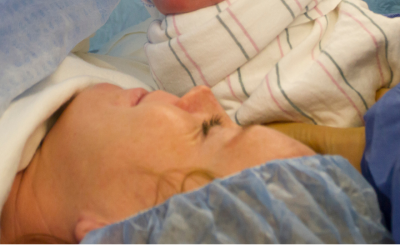
Eating processed foods in pregnancy linked to risk for preeclampsia
Maternal Consumption of Ultra-Processed Foods-Rich Diet and Perinatal Outcomes: A Systematic Review and Meta-Analysis
Lay Summary: A healthy diet during pregnancy is important for supporting fetal development and growth. Several studies have found a link between a diet of ultra-processed foods and poor health in non-pregnant patients. (Foods like hamburgers, French fries, cakes, ice cream, pizza, sausages, and soft drinks.) Researchers wanted to know if the same thing was true for pregnant patients. So, they combined data from 61 different studies (known as a meta-analysis). This allowed them to look at the pregnancies of around 700,000 individuals. They found that pregnant women eating an ultra-processed foods diet were 28% more likely to develop preeclampsia than patients who did not. These same women were 48% more likely to develop gestational diabetes as well.
Take home message: While there are many reasons a patient may develop complications like preeclampsia, what someone eats in pregnancy can affect risk for pregnancy outcomes. This study suggests that eating ultra-processed foods can increase risk for preeclampsia. More research is needed to better understand this association. Women should focus on a heart-healthy diet of lean, unprocessed meats, fruits, vegetables, and whole grains before, during, and after pregnancy.
Link: https://www.mdpi.com/2072-6643/14/15/3242
Citation: Paula WO, Patriota ESO, Gonçalves VSS, Pizato N. Maternal Consumption of Ultra-Processed Foods-Rich Diet and Perinatal Outcomes: A Systematic Review and Meta-Analysis. Nutrients. 2022 Aug 8;14(15):3242. doi: 10.3390/nu14153242. PMID: 35956418; PMCID: PMC9370797.
About Research Roundup
Each quarter, our team of researchers reviews the most current studies related to hypertensive disorders of pregnancy and selects those studies they feel will be of greatest interest to our community to summarize.
Special thanks to our volunteer research team, who under the leadership of Dr. Elizabeth Sutton, make Research Roundup possible: Alisse Hauspurg, MD Felicia LeMoine, and MD Jenny Sones, PhD, DVM.
Related Articles

Recent findings in preeclampsia research have shown that preeclampsia likely has at least two variants – an early onset and a late onset variant. Early onset is typically defined as before 34 we...

Preeclampsia is a pregnancy complication marked by new-onset high blood pressure and signs of stress on organs such as the kidneys, liver, and brain. While much attention is often given to preterm dis...

Preeclampsia is a serious problem that can happen during pregnancy. It often affects the brain and can cause headaches, vision problems, strong reflexes, and seizures (called eclampsia). In this study...

Pregnancy offers a unique window into a woman’s future heart and cardiovascular health. Conditions such as hypertensive disorders of pregnancy (HDP) which include gestational hypertension, preec...

Heart disease, also called cardiovascular disease (CVD), is becoming more common in young women across the United States. Hypertensive disorders of pregnancy (HDP) is a group of conditions that includ...

